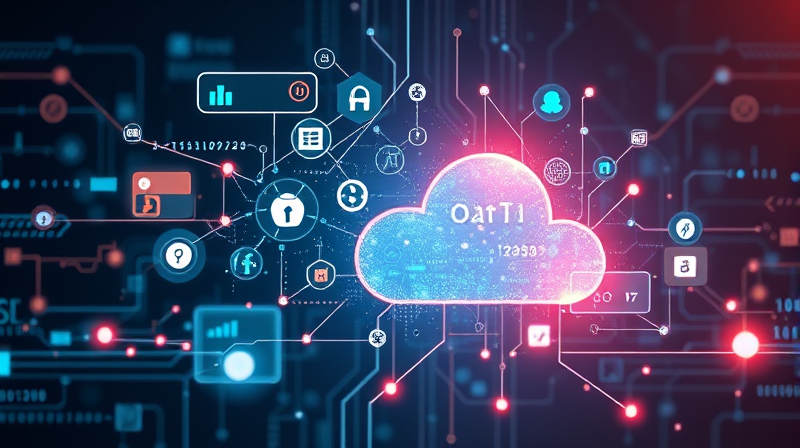In today’s rapidly evolving work environment, acquiring a broad range of tech competencies is not just an option, it is a necessity for anyone seeking success. The modern professional must be agile, informed, and ready to embrace new digital tools and methodologies to stand out and contribute effectively in any industry.
As we advance through the digital era, the transformation is not only occurring in business processes but also in the very foundation of professional skills. The journey to professional excellence now demands the mastery of a wide array of technical abilities that can enable data-driven strategies, secure operations, and adaptive problem-solving. Below, we outline the must-have tech competencies that pave the way for success in the modern age.
Data Literacy and Data-Driven Decision Making
Our current era is defined by information, and data plays a central role in decision-making processes. Data literacy has become a critical skill as industries increasingly rely on data to guide strategic decisions.
The expectation is no longer just to handle spreadsheets but to harness the power of data through analysis, visualization, and even basic statistical modeling. Professionals who understand how to extract meaningful insights and interpret complex data can drive decision-making that is both informed and effective.
- Analytical Skills: Grasping the basics of data analysis ensures you can work with information confidently and accurately.
- Visualization Techniques: Transforming data into visual stories empowers teams to quickly identify trends and critical factors.
- Statistical Reasoning: Using statistics to support conclusions further adds credibility and precision to business decisions.
This competency is especially valuable where the ability to translate numbers into actionable insights can significantly impact business operations.
Artificial Intelligence (AI) and Machine Learning (ML) Awareness
AI and ML continue to revolutionize various sectors by automating routine tasks and offering sophisticated data interpretations. The smartest professionals are those who understand not only how these tools work but also their practical applications in marketing, finance, healthcare, and more.
It is essential to be aware of the ethical implications and limitations associated with AI. Even if you are not responsible for designing these systems, a foundational understanding of AI and ML assures that you can effectively leverage these technologies and participate in discussions about their use.
- Fundamentals of AI: Familiarity with how AI algorithms operate can help you discern their appropriate applications.
- Machine Learning Basics: Understanding how machines learn enables you to recognize trends and patterns within large datasets.
- Ethical Awareness: Considering the ethical dimensions helps maintain a balance between technological advancement and societal values.
Cybersecurity and Digital Privacy
The increased dependence on digital tools necessitates a strong foundation in cybersecurity. Every employee, regardless of role, must be aware of the fundamental principles of protecting data and maintaining privacy.
Cybersecurity is not just the domain of IT professionals; it is a collective responsibility. From creating secure passwords to recognizing phishing scams, each step is vital in safeguarding sensitive information. The modern work culture, which often includes remote or hybrid offices, depends heavily on a well-informed approach to digital security.
- Data Protection: Consistent attention to digital privacy ensures the secure handling of sensitive business and personal data.
- Risk Mitigation: Awareness and prompt response to cybersecurity threats protect both organizational and personal information from potential breaches.
- Continuous Learning: Keeping updated with emerging security practices puts you at an advantage in a constantly changing digital landscape.
Cloud Computing and Edge Technologies
Cloud computing has become the backbone of modern business infrastructure. Solidity in using cloud platforms and understanding their architecture is essential for maximizing operational efficiency in organizations that implement remote work models or require scalable resources.
Edge computing is transforming how and where data is processed, pushing computations closer to the source. Embracing these technological changes means being prepared to utilize platforms such as AWS, Azure, or Google Cloud, and understanding the nuances that make these systems work seamlessly.
Digital Collaboration and Remote Work Tools
The shift towards hybrid and remote work environments has reshaped how teams collaborate. Proficiency in digital collaboration tools ensures that communication and productivity are maintained no matter the physical location.
From project management software to document sharing and video conferencing tools, modern professionals must be adept at using these digital resources. The ability to integrate seamlessly within a distributed team setting is critical for professional success and workflow continuity.
Critical Thinking and Technological Adaptability
Not every challenge can be met with a pre-packaged solution. Critical thinking and adaptability are the meta-skills that empower professionals to tackle unforeseen problems and keep pace with technological advancements.
This skill set involves the ability to rapidly learn new software, reimagine processes, and implement innovative solutions that align with evolving market demands. In essence, the willingness to learn and the habit of questioning the status quo are as important as technical proficiency.
Emerging Technologies: IoT and Blockchain
Finally, acknowledging the role of emerging technologies such as the Internet of Things (IoT) and blockchain is essential. Understanding the fundamentals of these innovative technologies provides an edge in industries like logistics, digital identity, and smart environments.
As these technologies become more ingrained in everyday business operations, professionals who can grasp their potential will find themselves at a significant advantage. Whether in optimizing supply chains or enhancing transparency in transactions, IoT and blockchain are driving the next wave of tech innovation.
The synergy of these competencies creates a robust foundation for modern professionals aiming for success in the digital age. By embracing everything from data analysis and AI to cybersecurity and cloud computing, you position yourself to not only navigate but also thrive in an ever-changing technological landscape.
Ultimately, the journey towards mastering these competencies is not a one-time event, but a continuous process of learning and evolution. Embrace new challenges, stay curious, and continuously hone your technical skills to remain competitive and innovative in your field.








